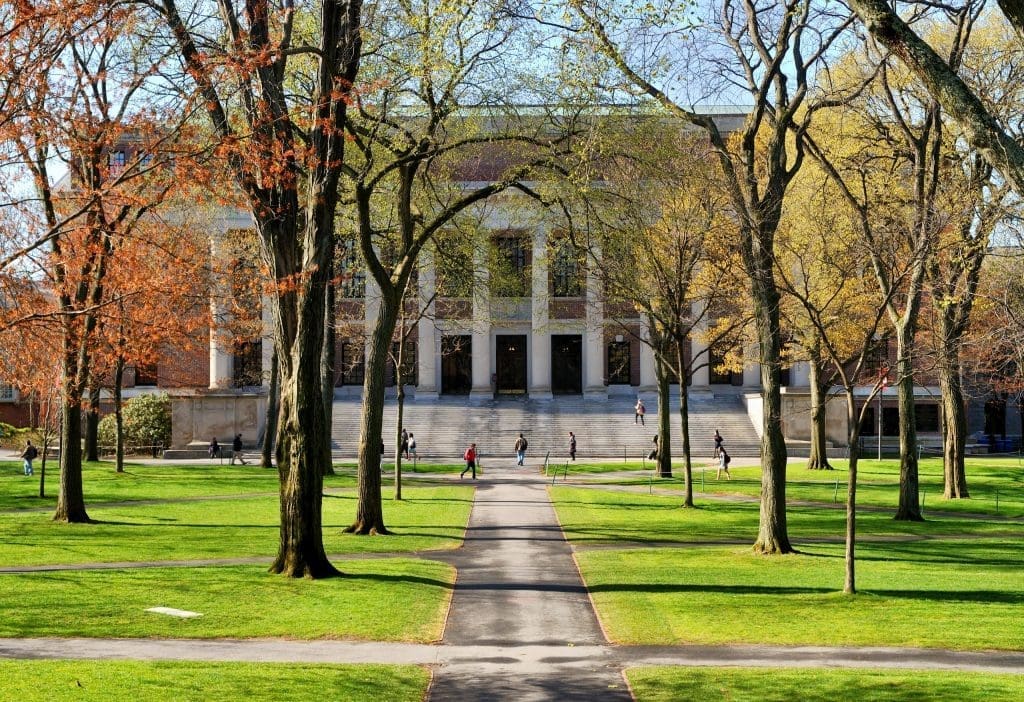Why are high-achieving students rejected from their top-choice schools? College rejection comes in many different forms, but some denials are more confusing than others. Let’s dig a little deeper into the reasons behind a college denial. 2024 proves to be yet another record-setting year for acceptance rates, but that doesn’t mean you have to leave your future up to chance.
Top Schools Release Admission Decisions for High School Class of 2024
This year, as predicted, undergraduate college admissions are in flux due to shifting requirements for current high school students. There have been many competing variables at play in the discussion, ever since the massive disruption of the COVID-19 pandemic radically altered the education landscape. Today in 2024, as many students return to physical classrooms, lingering issues range from the unresolved requirement—or lack thereof—of standardized test scores to the recent Supreme Court decision on the role of race and ethnicity in admissions decisions, and beyond.
Despite these changes, however, not all has been turned upside down. Certain metrics seem to hold true over time: academic excellence, community involvement, and well-written application essays. Many colleges champion holistic admissions that evaluate the student’s profile as a whole person. Key terms like intellectual vitality and community leadership are universally understood to be valuable traits.
So why are hard-working students who achieve high marks in high school—and earn accolades outside of the classroom—nonetheless being rejected from their preferred universities? Despite earning high grades, an increasing number of students are finding they don’t meet the profile of what admissions officers seek. Forbes reported in April 2024 that more and more top students were facing denials.

Why Are High-Achievers Rejected from Top Schools?
This trend isn’t coming out of left field.
One student in the Bay Area of California, Stanley Zhong, was rejected from 16 out of the 18 colleges he applied to as a senior in high school in 2022—despite “a 4.42 weighted GPA, 1590 out of 1600 on the SATs, and his own e-document signing startup.” In fact, the teen even landed a non-entry-level job at Google, one of the largest software companies in the world, only months after learning of his rejection from “MIT, Carnegie Mellon, Stanford, UC Berkeley, UCLA, UCSD, UCSB, UC Davis, Cal Poly SLO, Cornell,” and others. What did Google see that these colleges seemed to miss? What could lead to these kinds of bizarre outcomes?
It’s not just a roll of the dice; and contrary to popular belief, while the process of college admissions is a nuanced—and ultimately, very human process—there are nonetheless reasons for the choices “behind the curtain” that could shed light on these seemingly illogical decisions.
Hopefully, this perspective can help balance out your reaction to your own college decision letters, and highlight that strong students can thrive and succeed wherever they choose.
Reasons Why Strong Students Might Receive a College Rejection Letter
1. Lack of compelling narrative or “hook”
The strongest student applications demonstrate consistent themes. This special cohesion can appear in repeated areas of interest within one subject, or shared patterns of thinking between disparate but related activities. Ultimately, this is one of the ways you distinguish yourself from other applicants; what makes you unique? Find and nurture your strengths and talents in order to highlight your individuality.
Furthermore, you’ll want to demonstrate growth over time in these activities. It’s one thing to profess your love of astronomy; it’s another to actually point to several activities that prove this interest. For instance, volunteering at the local science museum, tutoring peers in science subjects, and participating in a NASA student competition. The more authentic your interests are, the more clearly your themes come across.
2. Lack of vision of the future
Many high school students participate in community service because it’s a requirement. This is apparent to application readers when students employ generic phrasing to describe their activities, such as “I want to help people,” or “I want to make the world a better place.” Unfortunately, these phrases ring hollow, and admissions officers read them at least ten times a day.
When describing your goals, try to find your deeper motivations, and consider the potential impacts of your actions. Think about what communities you participate in and how you can give back to those circles. Even better, consider how and what you can bring to your future college campus. Highlighting these clear contributions show that you are able to think beyond yourself.
3. Culture mismatch
When creating your college list and researching universities you will apply to, be sure to research the good and the bad. Students may have a preconceived idea of what attending a certain college will be like, only to find out that the actual student experience is little like what they expected. This can apply to everything from class sizes to dorm organization to seasonal weather.
To avoid this, education experts caution students to avoid “tunnel vision” when it comes to building your college list. Do your research when you start out, and try to avoid fixating on one or two specific “dream” schools at the cost of all others.

4. Academic record mismatch
At times, high school students will apply to “high reach” schools—where they have a small chance of acceptance—despite the odds. Like a culture mismatch, this can result in gaps between student expectations and reality.
However, this doesn’t only apply to students who struggle with GPA. As we discussed earlier in the article, it’s often top-scorers who find themselves in these predicaments. What could explain this? Well, as a matter of fact, some colleges will take their own yield rate into consideration, thereby avoiding offering admission to students who appear overqualified—and would not be expected to accept. It’s true: sometimes, a student might be considered too good.
5. Institutional priorities
The most likely explanation for an unexpected rejection, out of all of these options, is rather impersonal. Every college shapes their incoming freshman class with certain goals in mind—diversity, excellence, and fairness. Whatever the primary goals are, sometimes well-qualified students will be denied admission because they don’t fit in with their institutional priorities.
What does that mean, exactly? In order to ensure equal opportunities and achieve a class whose demographic fairly correlates to the application pool, there are different categories of special attention. Most universities will reserve space for students from all geographic zones and socioeconomic backgrounds, as well as legacy students, scouted athletes, and others. These are just a few of the types of priorities that a college or university admissions team must consider.
6. Letters of recommendation
Finally, one aspect of your application that many students tend to overlook is surprisingly one of the most important. Your letters of recommendation from teachers, mentors, coaches, and counselors are a key facet of your overall application. For particularly competitive schools, these letters need to be stellar.
Come prepared when you request a letter of recommendation from a teacher. At the very least, bring your resume and a few samples of your work, as well as a few notes on your experience as their student. Ask in plenty of time—avoid rushing—to give your recommender the opportunity to fully sing your praises. (For bonus points: always remember to communicate your gratitude.)

What the Record-Setting 2024 Admissions Season Proves: Student Takeaways to Avoid Rejections
While it’s not as simple as black-and-white, there’s no need to panic about the cloudy mystique surrounding college admissions. What’s more, gaining entrance to a great university in the US isn’t as impossible as some news makes it out to be. While the journey to college acceptance is challenging, coming prepared will help you to put your best foot forward.
Here are a few takeaways that we can learn from this record-breaking admissions season.
Grades aren’t enough anymore.
Students need to work on their overall application package. Presenting your hard work in the best possible way will increase your chances of attending the school of your dreams. If you’re worried about the written portion of your application, seek out expert help.
Sometimes, it’s REALLY not about you—it’s about your context.
Try not to take these admissions decisions lightly, but also don’t take them personally. A rejection letter doesn’t mean you weren’t good enough to attend, it simply means they didn’t have space for you this year.
The college you attend doesn’t define you.
Your success is about your experiences and where you choose to go. Ultimately, your college diploma doesn’t determine your worth as a person. There’s no need to compare yourself to others or base your self-esteem on rejection or acceptance letters.
You don’t have to leave this up to chance.
There are mentors out there who want the best for you. Find those educators who want to help you thrive, and hold you accountable. A college coach, like Empowerly, can help you bring out the best in your students and help them reach their full potential.
Looking for more? Here are a few great blog posts that can help you get started on your college search.
Empowerly AI Scholar Reaches for New Heights
Student Voice: The Raw, Unfiltered Value of College Counseling
